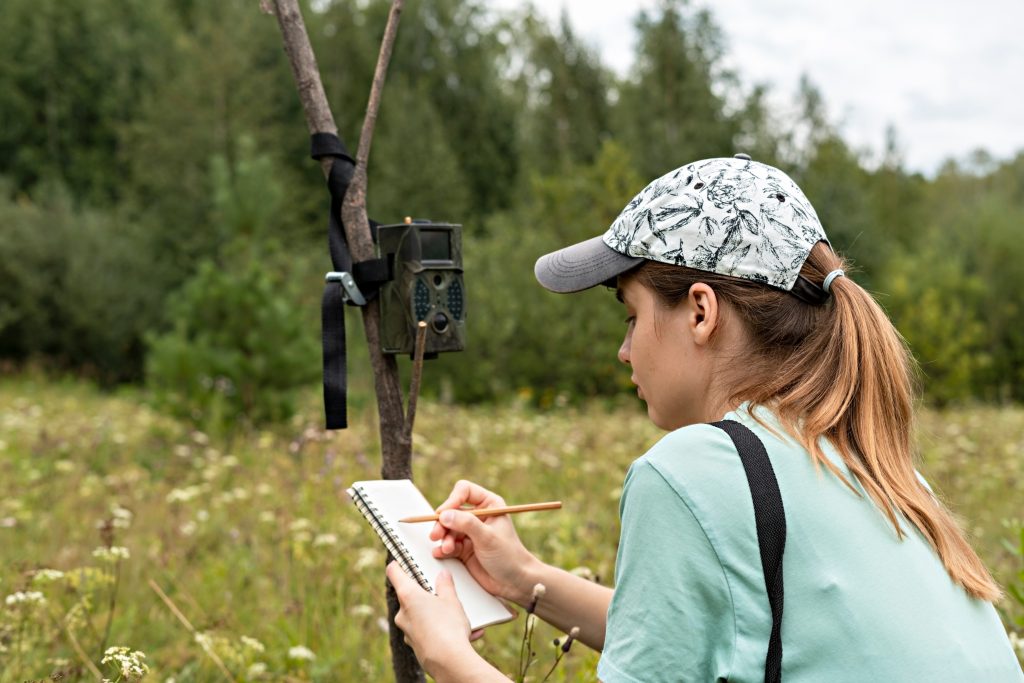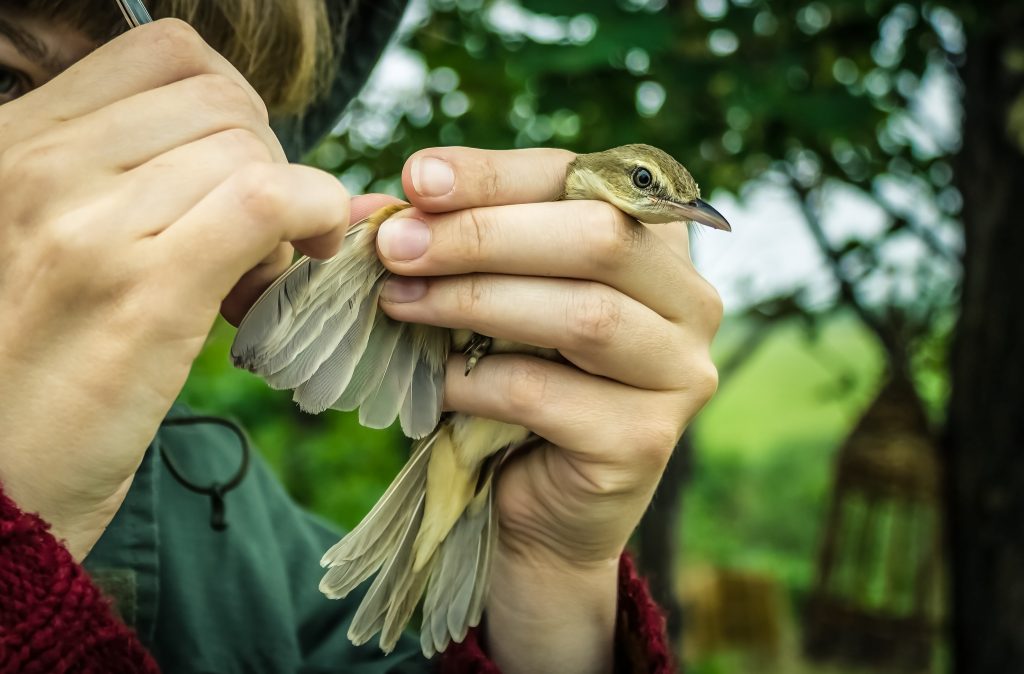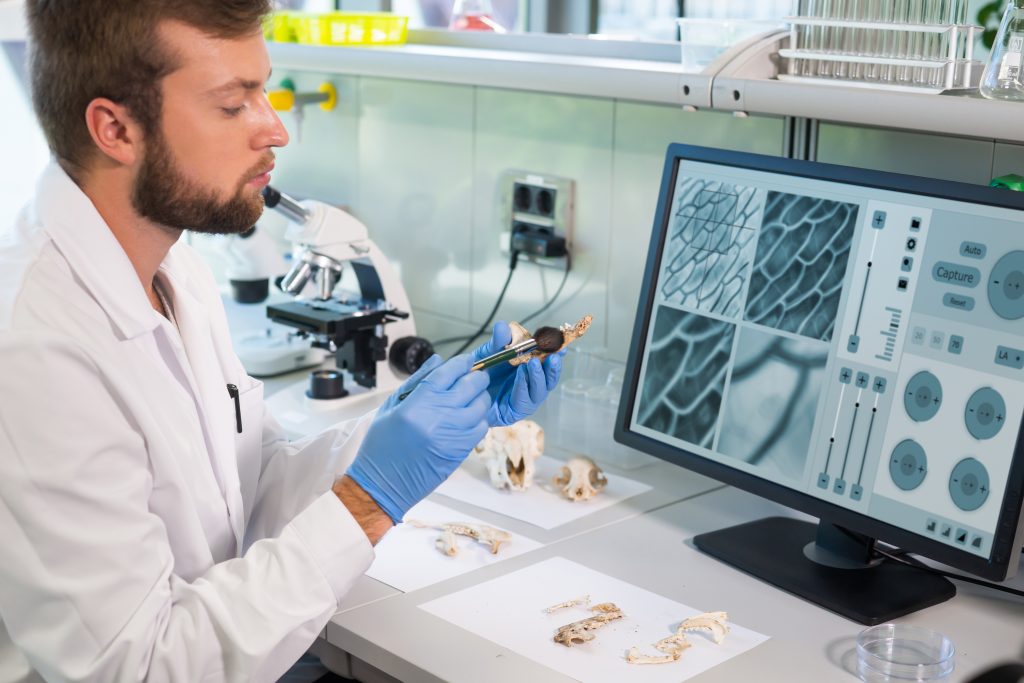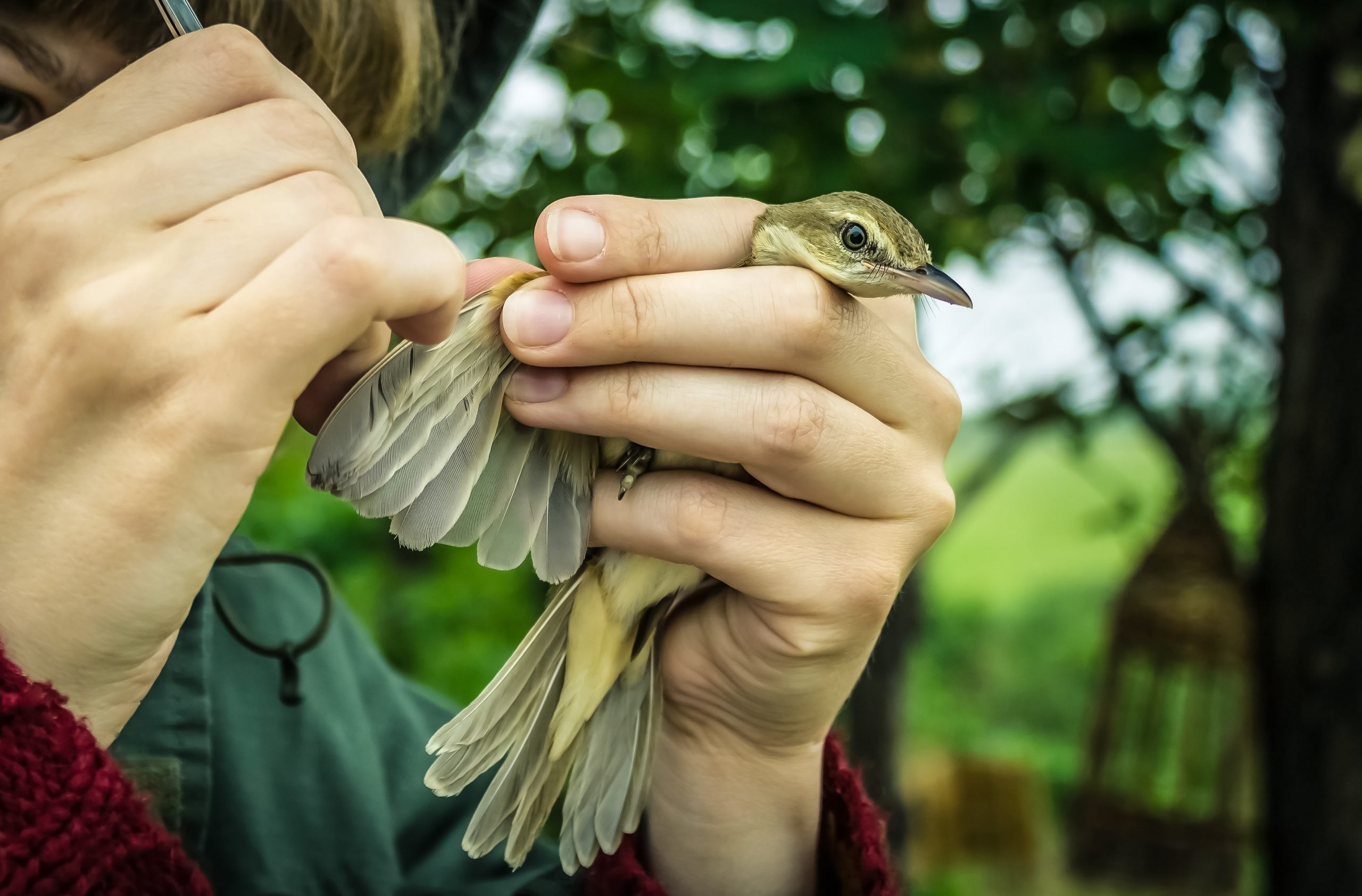Contents
 If you have a passion for animals that goes beyond cuddling puppies and you feel a desire to help improve the environment, a career as a zoologist might be an ideal fit. Depending on what type of zoologist you become, your day might be spent:
If you have a passion for animals that goes beyond cuddling puppies and you feel a desire to help improve the environment, a career as a zoologist might be an ideal fit. Depending on what type of zoologist you become, your day might be spent:
- interacting with animals
- working in labs or research facilities
- leading teams of biologists and fellow zoologists in zoos or animal conservation organizations
How Do I Become a Zoologist?
The first step to become a zoologist is to earn a zoology degree. According to the Bureau of Labor Statistics (BLS), zoologists typically need a bachelor’s degree for entry-level positions. However, if you plan to do investigative, research, or scientific work, a master’s in zoology or a closely related discipline is required. If you seek independent research opportunities or teaching appointments at colleges or universities, a Ph.D. is required. The best degree for becoming a zoologist depends on which career path you plan to take in this role.What Degree Do You Need to Be a Zoologist?
You’ll need a zoology degree if you plan to work as a zoologist. However, you don’t have to be a zoology major to land an entry-level position as a zoologist. But you will need a bachelor’s degree in a related discipline, such as:- ecology
- general biology
- wildlife biology

Best Degrees for Zoologists
Most entry-level positions in zoology require at least a bachelor’s degree, but you don’t have to be a zoology major to land a job as a zoologist. Several areas of study are beneficial to the role of a zoologist. In other words, you’ll have plenty of study options while working toward becoming a zoologist. Below are typical degrees zoologists earn. Ecology An ecology degree includes instruction in various principles related to:- animal science
- crop and soil sciences
- entomology
- horticulture, and more
- Animal behavior
- Biology of mammals
- Ecosystem ecology
- Fisheries science
- Marine ecology or biology
- animals
- bacteria
- fungi
- plants
- animal behavior
- evolutionary biology
- invertebrate biology
- marine biology
- zoology
- general zoology
- introduction to wildlife rehabilitation
- mammalogy
How Long Does It Take to Become a Zoologist?
Your journey toward becoming a zoologist may take many turns, but your education will remain consistent. Nearly all working zoologists hold bachelor’s degrees in zoology. The undergraduate degree is a foundation to build upon with:- additional coursework
- advanced degrees
- advancement on the job
Becoming a Zoologist: How to Advance in Your Career
Typically, zoologists receive greater responsibility and autonomy in their research and work as they gain experience. However, earning an advanced degree also helps to advance your career. Zoologists who lead research teams or work independently on one or more research projects must hold a Ph.D. The doctorate in zoology can lead to:- independent research
- more control of projects
- funding to carry out proposed research projects

Other Important Qualities for Zoologists to Have
Even before you’ve earned your degree to become a zoologist, it’s important to evaluate your fit for this unique career. Besides the knowledge gained in the classroom, certain traits and qualities are equally important. Successful zoologists possess the following qualities and skills.- Ability to communicate: Effective communication is needed for this profession, as zoologists must be able to give talks, present papers, and interact with policymakers. Being able to communicate with a broad range of audiences, not only those with a scientific background, is important to the role.
- Emotional stability: While working in the field, zoologists can go for long stretches of time with little to no human contact. They must be able to endure these long periods of time and remain emotionally stable as they work with injured and sick animals.
- Interpersonal skills: At times, zoologists work on teams. They must be able to work successfully with others to complete a goal. If members of the team disagree, zoologists must be able to negotiate to achieve the common goal.
- Observation skills: Zoologists are observers. They watch and note the slightest changes in the animals they research or care for. Changes may include an animal’s behavior or appearance. Having strong observation skills ensures accuracy.
- Outdoor skills: During research trips or field observations, zoologists may endure life in remote areas. They often work outdoors, hike long distances carrying heavy packs and equipment, drive a tractor or boat, and travel by ATV. To navigate the environment, zoologists should have strong outdoor skills.
- Problem-solving skills: The zoologist’s role is to conduct research and come up with solutions for the threats that impact wildlife. Threats may include disease and habitat loss. This job calls for strong problem-solving skills.
How Much Money Does a Zoologist Earn?
Now that you’ve determined what kind of schooling you need to become a zoologist, it’s important to evaluate your earnings potential. The Bureau of Labor Statistics (BLS) reports the median annual wage for zoologists as $66,350. The lowest 10% of earners in this occupation make less than $41,750 a year, while the highest 10% of earners make more than $106,300. Since the average wage for all occupations is $41,950, according to BLS, zoologists earn a favorable, above-average income. Certain factors impact your earnings potential as a zoologist. First, pay fluctuates with industry. This means that certain industries pay more, and others pay less. According to BLS, there are five top-paying industries for zoologists. These industries are listed below.- Federal government: $81,530
- Research and development in the engineering, life, and physical sciences: $71,300
- Management, scientific, and technical consulting services: $69,490
- Colleges, professional schools, and universities: $62,300
- State government (excluding education and state-run hospitals): $59,660
- District of Columbia: $113,310
- Massachusetts: $94,380
- New Jersey: $83,920
- Hawaii: $83,250
- Maryland: $83,050
- Gulfport, Biloxi, Pascagoula (Mississippi): $110,830
- San Diego, Carlsbad (California): $108,680
- Barnstable Town (Massachusetts): $105,890
- Washington, D.C.; Arlington; Alexandria: $104,160
- San Jose, Sunnyvale, Santa Clara (California): $92,750
- Boston, Cambridge, Nashua: $92,520
- Houston, The Woodlands, Sugar Land (Texas): $91,780
- Bellingham, Washington: $90,560
- Seattle, Tacoma, Bellevue (Washington): $88,900
- New York, Newark, Jersey City: $88,260
- San Diego
- Washington, D.C.
- Boston
- Seattle
- New York
- Alaska non-metro area: $84,770
- Coastal Oregon non-metro area: $76,530
- Southwest Colorado non-metro area: $74,200
- Western Washington non-metro area: $73,970
- Northeast Mississippi non-metro area: $73,390

What Is the Job Outlook for a Zoologist Career?
With the proper education for zoologist careers, you’ll find yourself with a favorable job outlook and viable job prospects. However, the overall employment growth for this occupation is slightly slower than the national average of eight percent for all jobs. According to the BLS, employment for zoologists should grow five percent through 2030. While the job growth is slightly slower than the average for all occupations, we should still see about 1,700 openings for zoologists and wildlife biologists each year for the next 10 years. Job openings are expected to result primarily from the need to replace workers who either transfer to other occupations or retire from the labor force. Certain areas of the field will show more growth and demand for zoologists than others. For example, BLS reports a growing need to study human and wildlife interactions. As the human population grows, zoologists and wildlife biologists will be needed to research the impact of this growth on animals and natural habitats. Population growth will also contribute to new branches of employment for zoologists, especially as new threats that endanger animals and wildlife arise. Other areas of research, such as disease impacts, habitat loss, and pollution will spur the hiring of new zoologists. States that rely on animal tourism will remain stable in their efforts to employ zoologists and wildlife biologists over the next decade. Organizations that hire zoologists include conservation facilities and zoos. In government-run agencies, zoologists will be needed to help implement new conservation plans that combat threats to animals and protect natural resources. Overall, the job outlook, while not significantly favorable, remains stable if one knows where to search for the best job prospects. Related Resources:- 25 Best Online Degrees for Animal Lovers
- Ultimate Guide to Science and Engineering Degrees and Careers
- What’s the Best Degree Path to Becoming an Animal Care Worker?
- What Is the Best Degree Path to Becoming an Environmental Engineer?
